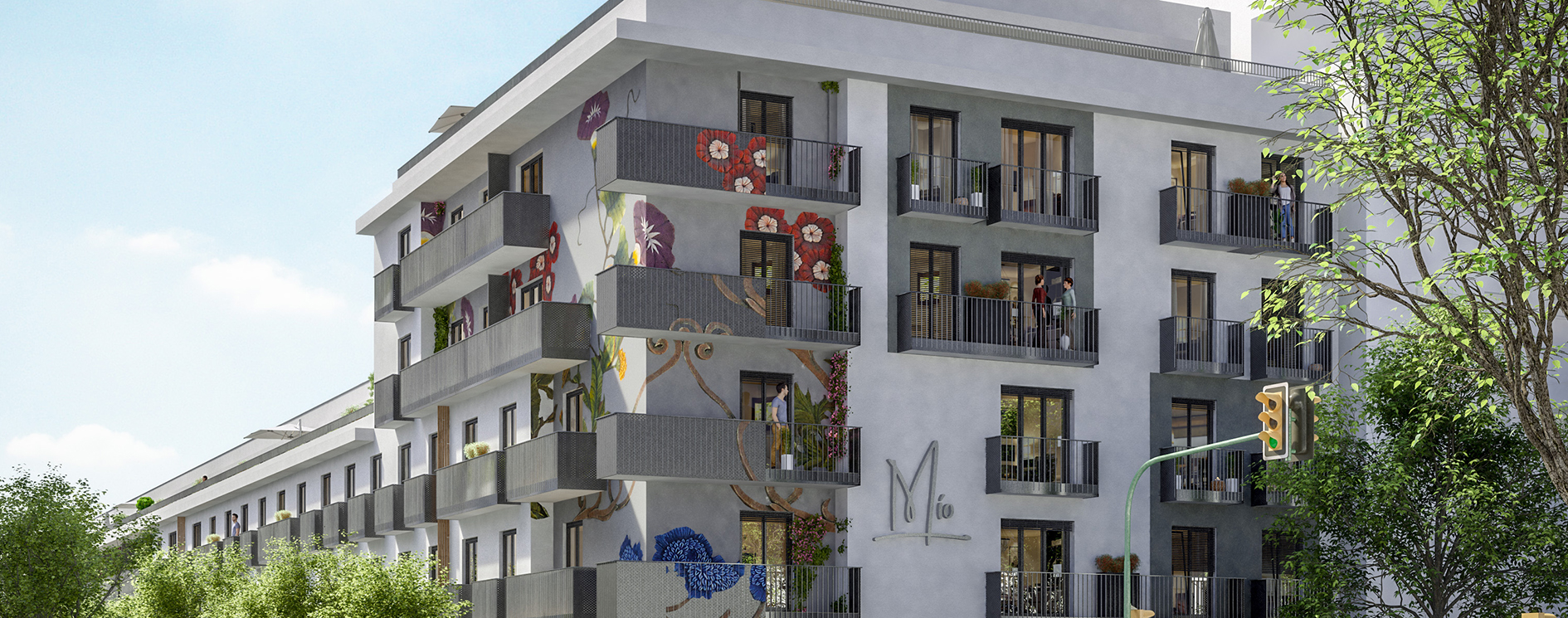Mallorca Zeitung – No. 935 – 5th April 2018, article by Frank Feldmeier
40 square metres suffice
Developers and investors have discovered the potential of micro-apartments in Majorca
and are presenting a project for 140 residential units. Yet the industry is complaining
about restrictive building regulations.
New real estate projects on Majorca are often touted with superlatives like “even more
luxurious”, “ever larger”, “an even better view”. In recent years, construction has focused
on villas and exclusive developments. However, most customers are looking for the exact
opposite of large and priceless: they want apartments that are smaller but affordable with
average Majorcan salaries. The chairperson of the association of developers on the
Balearic islands (Proinbar), Luis Martín, says: “There is practically nothing in the field of
40 sq m apartments, despite there being huge demand”. Investors are also extremely
interested; however are limited by the restrictive building laws on the islands.
The target group of buyers and tenants for micro-apartments is strongly represented on
Majorca in quantitative terms, even though they don’t have the deepest pockets. They
mainly include: people working in the tourism industry, who generally just want a place
to stay in season; young people looking for their first home; and individuals.
From Frankfurt to Palma
The interest of German investors and property developers has also been piqued, and
they have come together to present a project of 140 micro-apartments in Palma.
Mercurius Real Estate, a subsidiary of the Frankfurt-based financial service provider of
the same name, has already built and sold one-bedroom apartments in German city
centres. On the other hand, builder and property developer Domus Vivendi has been
active on Majorca for over 20 years; in particular in the luxury segment, with projects like
Elements in Puerto Portals.
The two partners consider the capital of the Balearics to be the ideal location for similar
projects like those in Germany. A press release states: “The city’s population, which is
growing at a steady rate is, as is generally the case in Spain, faced with a scarcity of
rented accommodation.” When it comes to the highest rents in Spain, Palma comes in
third position, behind only Madrid and Barcelona. That is why the company wants to apply
the concept of part-furnished micro-apartments to the Majorcan city. The planning
application is currently being prepared; they hope to receive planning permission from
the town hall in Palma in the first half of 2019. Details are yet to be announced.
Saturated German market
In addition to the expected demand in Palma, the project is also a response to the current
situation in Germany. Mercurius Real Estate believes that the real estate development
market is saturated, especially in the company’s home city of Frankfurt. The lack of
opportunities is increasingly drawing investors abroad. The company has revealed that
the development has an investment value of 40 to 45 million euros.
Luis Martín from the Balearic property developers association has also noticed an
increasing interest from investment funds acting across Europe in projects concerning
minipisos (micro-apartments). Majorca is following on from experiences with this model
in Germany and in Scandinavian countries. Martín has been a fan of micro-apartments
for a long time and is now seeing the first signs that Majorca’s politicians have recognised
the signs of the times. The chairperson of Proinba sees an opportunity for the municipality
of Palma in particular; as, in contrast to other districts, the city administration has chief
responsibility for building regulations – in other areas the building regulations are under
the authority the island council. The municipalities of Manacor, Inca and Alcúdia
represent other attractive locations for projects like this.
The main problem to date has been restrictions on building heights and the limit on the
number of residential units per area, explains Martín. The aim is not to cover the island
in concrete or to build along all the coastlines, but what is the problem with softening the
restrictions on Palma’s radial roads, for example?
Martín does not entertain the argument that empty real estate needs to be brought to
market before new buildings are erected. Most large apartments in the centre of Palma
are too expensive for the target group of micro-apartment residents. The demand is much
greater for smaller apartments of 35 to 50 sq m in size, and for one- or two-bedroom
apartments. They could be built in two- or three-storey buildings, with shared laundry
rooms and drying rooms. “Depending on the price of the land, apartments like this could
be brought to market at a price of 90,000 to 100,000 euros.” The possible range of rental
prices for minipisos is not yet known. The question of whether Palma is getting to grips
with the issue of holiday rentals remains unanswered. On the one hand, it is the reason
for the lack of housing; but it could – if the city plays ball – represent a great incentive for
micro-apartments.
About the Domus Vivendi Group
Over 30 years of international experience in the development and construction of high-
quality real estate; from the preliminary design phase through to the turnkey handover.
In Time – In Budget – In Quality are combined with extensive industry knowledge, many
years of experience and proven expertise. As part of project management, Domus
Vivendi plans, manages and monitors construction projects from their initial phases to
customer handover. The Domus Vivendi Group has a current project volume of over 550
million euros.
For further information, please contact:
DOMUS VIVENDI GROUP
Domus Vivendi GmbH & Co. KG
Roßmarkt 10
D-60311 Frankfurt am Main
Tel .: +49 69 920 2079 00
E-mail: info@dv-group.de
Web: www.dv-group.de
